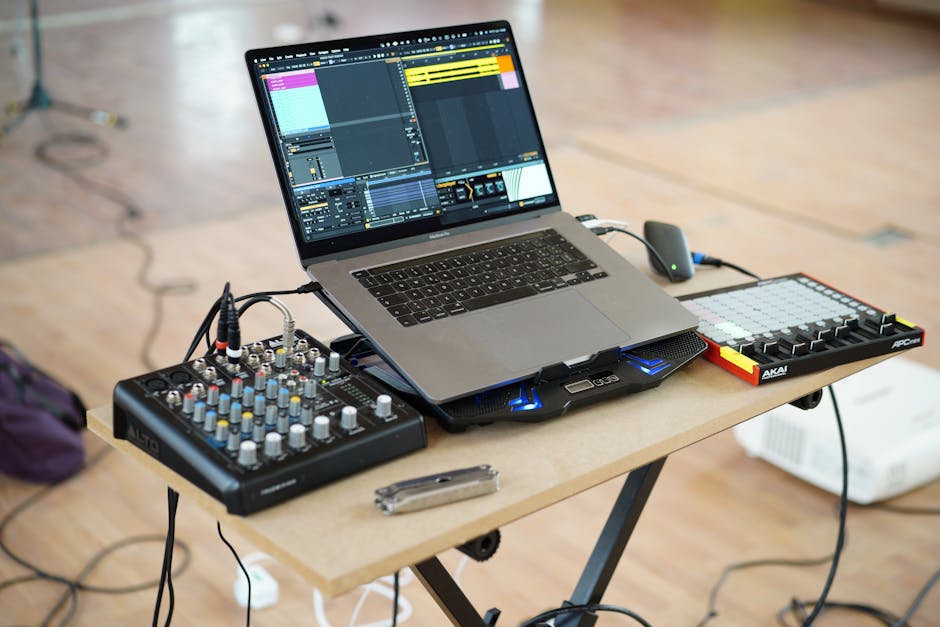Comparing FL Studio vs Logic Pro X: Which DAW is Right for You?

Choosing the right Digital Audio Workstation (DAW) can significantly impact your music production workflow. Two of the most popular DAWs are FL Studio and Logic Pro X, both offering distinct features and strengths that cater to different types of users. Whether you’re an experienced producer or just starting out, understanding how these two platforms differ can help you make an informed decision. While FL Studio is known for its user-friendly interface and flexibility, Logic Pro X stands out with its comprehensive tools for professional-level audio production. Let's take a closer look at these DAWs to determine which one might be the best fit for your needs.
Usability and Interface
One of the first things users notice when comparing FL Studio and Logic Pro X is the difference in their interfaces. FL Studio is often praised for its intuitive and straightforward design, which makes it accessible to beginners. The layout is customizable, allowing users to arrange their workspace according to their preferences. This flexibility can be especially useful for those who prefer a more personalized workflow.
On the other hand, Logic Pro X has a more traditional interface, which may feel more familiar to users with experience in other professional software like Pro Tools or Cubase. While it might not be as beginner-friendly as FL Studio, it offers a powerful set of tools that allow for greater control over complex projects. Once you get used to its structure, Logic Pro X becomes an incredibly efficient environment for audio recording, mixing, and mastering.
If you're a beginner looking for an easy-to-learn platform, FL Studio might be the better choice. If you value precision and are willing to spend some time learning the software's ins and outs, Logic Pro X provides a more robust environment for advanced production.
Features and Tools
When it comes to features, both FL Studio and Logic Pro X are equipped with a wide range of tools for music production. FL Studio is known for its excellent MIDI capabilities, especially with its step sequencer, which simplifies beat-making and pattern-based music production. This makes it a go-to choice for producers in genres like electronic music and hip-hop.
Logic Pro X, Is more focused on live instrument recording and offers industry-standard tools like Flex Time and Flex Pitch for editing audio recordings with precision. Its Drummer feature allows users to add realistic drum tracks quickly, while Alchemy synthesizer expands the possibilities for sound design. Additionally, Logic’s support for third-party plug-ins extends its functionality even further.
Both DAWs offer strong native plugins that cater to different music styles. FL Studio’s built-in plugins are great for electronic music production but may not offer as much flexibility as those in Logic Pro X when working with live instruments or vocals. In this sense, choosing between the two depends on whether you prioritize MIDI-based production (FL Studio) or live recording features (Logic Pro X).
Compatibility and Performance
An important consideration when choosing between FL Studio and Logic Pro X is compatibility with your operating system and hardware setup. Logic Pro X is exclusive to macOS users, which may limit its accessibility for Windows users unless they switch operating systems or dual-boot their machines. On the flip side, FL Studio runs on both Windows and macOS (as of recent updates), giving it a broader appeal across different user bases.
In terms of performance, both DAWs are designed to run smoothly on modern hardware configurations. Performance can vary depending on project complexity. Large-scale projects involving multiple tracks and effects tend to run more efficiently on Logic Pro X due to Apple's optimization of its software on their hardware systems.
Another aspect worth noting is plugin compatibility. While both programs support various third-party plugins in VST formats (FL Studio also supports AU plugins on macOS), some specialized plugins work better on one platform than another. It's always worth checking plugin compatibility before committing to either DAW if you rely heavily on third-party software.
Pricing and Value
The price points of FL Studio and Logic Pro X reflect their target audiences but also offer distinct value propositions based on individual needs. FL Studio offers multiple pricing tiers: Fruity Edition ($99), Producer Edition ($199), Signature Bundle ($299), and All Plugins Edition ($499). Importantly, all editions come with lifetime free updates, an advantage that ensures users receive new features without paying extra down the road.
Logic Pro X has a flat price of $199 through the Mac App Store, making it competitively priced considering the depth of features offered at no additional cost after purchase. Unlike FL Studio’s lifetime updates policy, future upgrades may require additional purchases if major versions are released down the line (although Apple has historically provided long-term support without significant update fees).
The decision here depends largely on your budget and what you need from your DAW. If lifetime updates are important to you or you prefer having different tier options based on your needs (e.g., beginners opting for Fruity Edition), then FL Studio may provide better value. If you’re already invested in Apple’s ecosystem or prefer a one-time payment model with robust features from the start, Logic Pro X presents great value.
| Feature | FL Studio | Logic Pro X |
|---|---|---|
| MIDI Sequencing | Excellent | Good |
| Live Instrument Recording | Adequate | Exceptional |
| Operating System Compatibility | Windows & macOS | macOS Only |
| Price Range | $99 - $499 (lifetime updates) | $199 (one-time) |
| User Experience Level | Beginner-Friendly | Intermediate/Advanced Users |
Which DAW Is Right For You?
The best DAW ultimately depends on your specific needs as a producer or musician. If you're just starting out or focus heavily on MIDI-based production such as electronic genres or hip-hop beats, FL Studio’s user-friendly interface and flexible pricing tiers make it an excellent choice. Its lifetime free updates also make it a long-term investment.
If you're more interested in recording live instruments or working within professional studios using advanced audio editing tools like Flex Pitch or multi-track recording setups, Logic Pro X offers unrivaled power at a competitive price point, especially if you're already part of Apple’s ecosystem.
The decision between FL Studio vs Logic Pro X doesn't have a one-size-fits-all answer. Each DAW shines in different aspects of music production based on your goals and how you intend to use them within your workflow. Taking time to assess what each platform offers will pay off in helping you produce higher-quality tracks that align with your creative vision.
